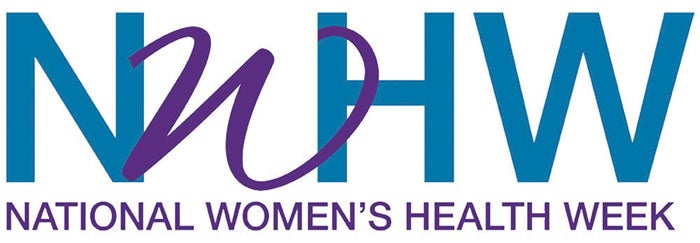Women’s Health Week a reminder to take care of yourself
Published 12:00 am Friday, May 11, 2018
May is the month that we celebrate mom. It is also the beginning of a week that reminds women to take care of themselves. The 19th annual National Women’s Health Week kicks off on Mother’s Day, May 13, and is celebrated through May 19.
National Women’s Health Week is a time that emphasizes women’s health. During this week each year, millions of women take steps to improve their health. The week is a reminder for women to make their health a priority and build positive health habits for life.
The U.S. Department of Health and Human Services’ Office on Women’s Health leads National Women’s Health Week to encourage all women to be as healthy as possible. Below are steps to take:
Get recommended screenings and preventive care. Protect your health by getting the care you need to prevent disease, disability, and injuries. Regular check-ups are important. Preventive care can keep disease away or detect problems early when treatment would be more effective. Take time to talk with your healthcare provider to learn more about what screenings and exams you need at various ages and stages of your life.
- Many health insurance plans offer preventive services for women at no cost.
- Knowing your family history is very important. Review your family health history, write down any questions or issues you may have, and take them with you.
Get out and about and enjoy the spring and summer weather.
- Physical activity is one of the most important things you can do for your health and has many benefits, including lowering your risk for heart disease – which is the leading cause of death for women.
- Adults should do at least 2 hours and 30 minutes each week of aerobic physical activity that requires moderate effort. It may seem like a lot, but the key is that you don’t have to do it all at once. Get at least 10 minutes of exercise at a time. Remember that something is better than the nothing that you may have been doing before.
- Adults should do strengthening activities at least two days a week that include all major muscle groups.
- Statistics also show that one out of three older people falls each year and women fall more often than men. Strength and balance training can help reduce the chances of falls.
Enjoy healthy foods. Nutrition is an essential part of a healthy lifestyle. Learn the basics, and move toward a lifestyle of healthier eating habits.
- A healthy eating plan includes fruits, vegetables, whole grains, fat-free and low-fat milk, and other dairy products and lean meats, and is low in salt, saturated and trans fats, and added sugars. The Mediterranean way of eating is a wonderful model to use when transitioning.
- Women need folic acid every day for the healthy new cells that the body makes daily – like skin, hair, and nails. It also helps prevent major birth defects during pregnancy. Women need 400 micrograms (400 mcg) of folic acid each day. In order to get the recommended daily allowance needed, eat a bowl of breakfast cereal that has 100 percent of the daily value of folic acid each day. Or, take a supplement such as folic acid pills or a multivitamin. Many have 100 percent of the daily value (DV) of folic acid; check the label to be sure.
Prioritize mental health. Keep your mind and body healthy. Research shows that positive mental health is associated with improved health.
- Getting enough sleep is important for overall health, including mental health. It impacts how you feel and perform during the day. Adults need 7-8 hours of sleep each night.
- Everyone experiences stress at times. Find healthy ways to cope with stress. Exercise can be a great way to relieve stress as well as just taking a break when you feel stressed out. Everyone deals with stress differently; find the best and most constructive way for you.
Practice healthy behaviors. Daily decisions influence overall health. Small actions can help keep you safe and healthy and set a good example for others.
- Wear sunscreen, and take steps to keep your skin beautiful. Ultraviolet rays can damage your skin, increasing your risk of skin cancer and premature skin aging.
- Use prescription drugs only as directed by a healthcare provider. It is estimated that about 18 women in the U.S. die every day of a prescription painkiller overdose.
- Be smoke-free. Each year, thousands of American women die of diseases caused by smoking. If you are ready to quit, call 1-800-QUIT-NOW (1-800-784-8669) or 1-855-DÉJELO-YA (1-855-335-3569 for Spanish speakers), or visit Smokefree Women for free resources, including quit coaching, a quit plan, educational materials and referrals to other resources where you live.
For more information about Women health, visit: https://www.womenshealth.gov/ for the most current trends in women’s health, information, facts sheets and more. For more information on National Women’s Health Week and how to be your best at any age, visit: https://www.womenshealth.gov/nwhw
Happy Mother’s Day and National Women’s Health Week.
If you have any questions, contact Toi Degree, family and consumer education agent, at 704-216-8970 or toi_degree@ncsu.edu.






